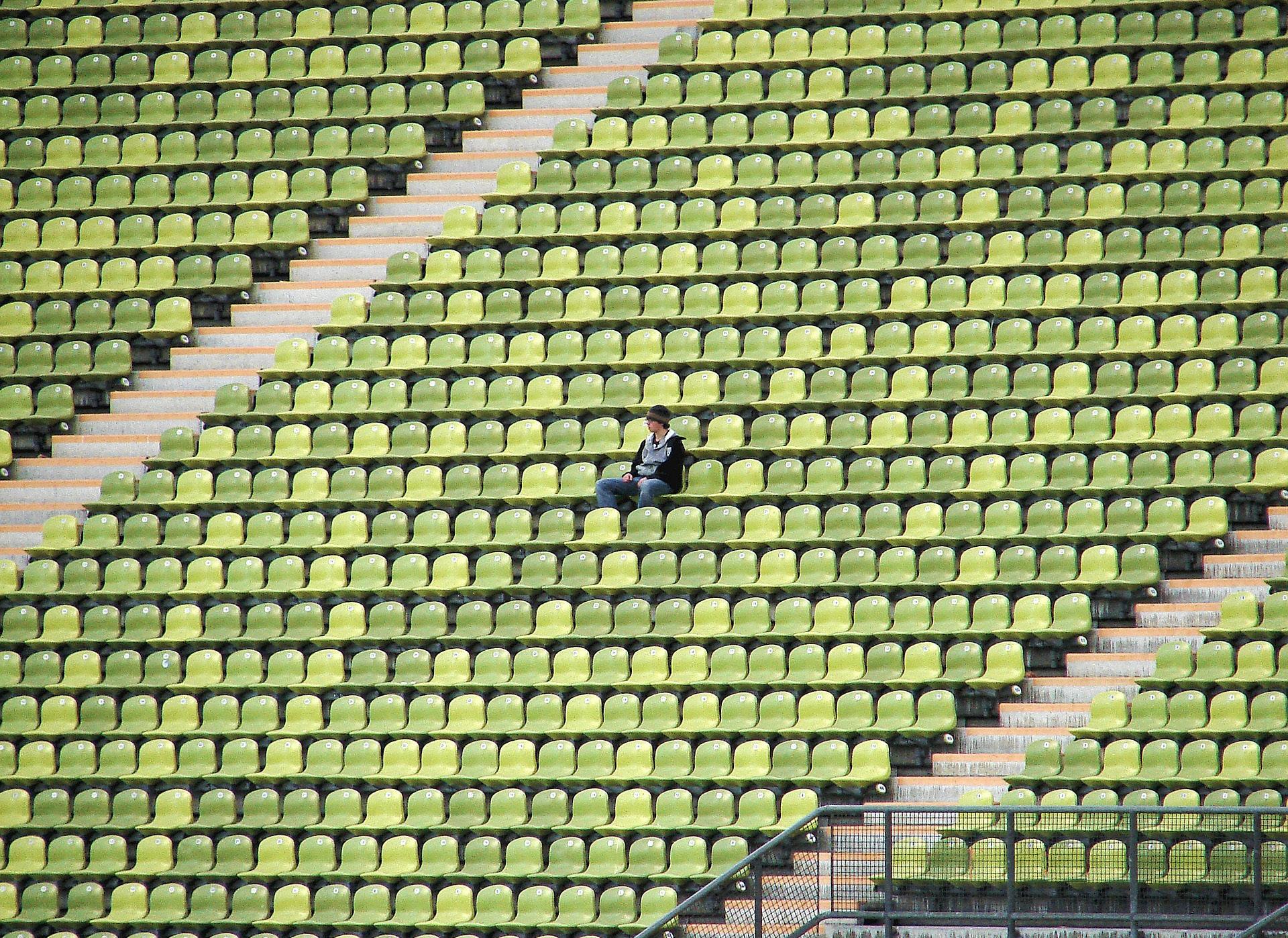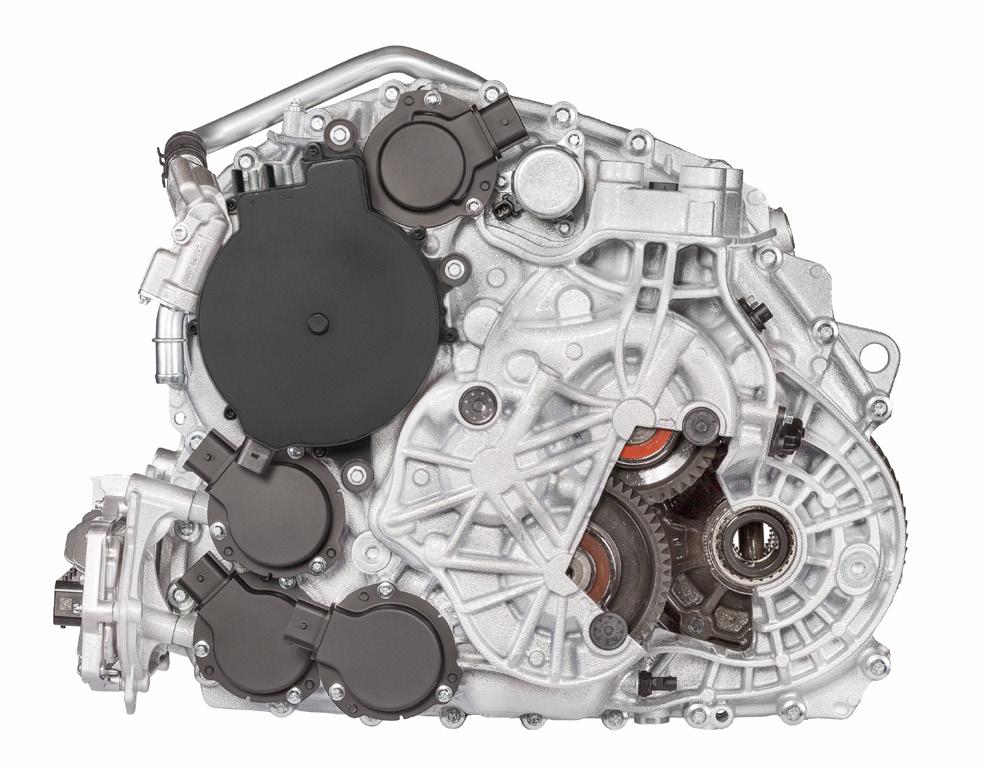
5 minute read
Looking to the Future with ESSMA
LOOKING TO THE FUTURE WITH ESSMA Article by Gavin Harper
The European Stadium & Safety Management Association (ESSMA) was founded in 1996 by former PSG President Lionel Dreksler. Since 2008, John Beattie (Stadium and Facilities Director at Arsenal FC) has been President of the Association.
In 2011, ESSMA created its new Executive Committee and Advisory Committee with respected members from various European top clubs and federations.
ESSMA offers a platform to stadium professionals where they can share, learn and discuss topics related to ESSMA’s areas of expertise: Development & Construction, Operations & Ticketing, Sustainability & SMART, Safety & Security, Fan Experience & Hospitality and Pitch Management.
In 2021, they will celebrate their 25th anniversary and hopefully kick-off the festivities during the annual ESSMA Summit, which should take place next January at Allianz Stadium. TLE Business recently caught up with ESSMA Managing Director, Cyril De Greve, to find out more about what they do.
ESSMA work closely with over 350 European clubs, stadiums, leagues and federation on the further development of the industry. With this strong European network, they discuss industryrelated topics, reach common insights and organise networking events to share knowledge and best practices.
Several European rugby organisations including IRFU and LNR (Ligue Nationale de Rugby – France) and its members (Aviva Stadium, Stade Toulousain, Connacht Rugby, etc.) are part of the ESSMA Community. Furthermore, FC Barcelona, Arsenal FC, PSG, AFC Ajax, FC Bayern München and other top clubs are long-standing ESSMA Members.
THE IMPACT OF COVID-19 The (temporary) lockdown across all Europe competitions has disrupted the industry. Even though, most competitions are gradually restarting again, the long-term consequences cannot be underestimated. According to ESSMA research the short-term challenges linked to matchday operations are focussed on selection of personnel that can attend, testing procedures & protection for staff and modified safety protocols.
Clubs should also take a look into improving the circulation/crowd management, sharing information towards their supporters and perhaps even thinking about decreasing the overall stadium capacity.
From ESSMA’s perspective, the most significant impact has been the cancellation of their annual Safety & Security Workshop in Marseille, as well as monthly visits to members across Europe. To overcome this period without physical knowledge sharing opportunities, they launched a webinar series mid-March to stay connected with members. Later this month, they also plan to launch their fifth ESSMA Webinar where Borussia Mönchengladbach will share their experiences on organising matches behind closed doors. Topics of the previous webinars include:
Tackling COVID-19 at Juventus Building the best fan zone with insights from SL Benfica and Brøndby IF
Turning your matchday staff into club ambassadors at Milwaukee Bucks The impact of hospitality segmentation on the development projects of Everton FC and Liverpool FC
THE CHANGING INDUSTRY It’s a challenging time for sports venues worldwide. Research amongst ESSMA members shows that 57% believe the stadium capacity will be reduced while 35% believe the stadium capacity will become more flexible. Furthermore, out of the participating clubs, 92% of them believe that the willingness of fans to attend matches will decrease.
“To run a stadium in an profitable way, a vaccine seems indispensable. Even when social distancing is reduced to one meter, it will be below the lower limit to efficiently run a business,” said Declan O’Brien, Operations & Events Manager at the Irish Rugby Football Union (IRFU) and longstanding ESSMA Executive Committee Member – However, research conducted by ESSMA also showed that there will be a faster breakthrough of several technologies such as thermal CCTV,

high-pressure cleaning, contactless access and self-testing kits.
In Europe several competitions are re-starting their season behind closed doors. As fans are not allowed yet, clubs are looking for creative solutions to get in touch with their fans and to still get them involved during matches. For example, Aarhus GF developed a virtual grandstand so fans can join the game via a livestream. While Borussia Mönchengladbach installed doppelgangers of its fans across the stadium.
At ESSMA, they are trying to gathering insights across Europe and are trying to support their members on how to deal with the current COVID-19 crisis. Recently, ESSMA launched a preliminary report on the impact of COVID-19 on sponsorship alternatives and enhancing the (virtual) matchday experience.
THE THREE MAIN CHALLENGES Even though every stadium has its own unique challenges and taking the cultural differences between countries into account, according to ESSMA’s research there are three main challenges.
First of all, expanding the stay of fans inside the stadium is a key challenge. Not only from a commercial point of view, where having people longer inside the stadium will make them spend more, but also to decrease the waiting lines at entry points and concession stands. And of course, stadium design plays a major role in this.
ESSMA recognises that when stadiums offer a convenient space with entertainment, people come earlier.
At the old White Hart Lane, Tottenham Hotspur FC had the worst score in terms of fan arrivals, in the newly-built stadium, opened just over a year ago, they are topping the list. Secondly, the importance of experiences cannot be underestimated. Giving people a qualitative offer, both towards hospitality guests and the general public. Apart from the quality, the range of offers seems to increase as well. An interesting evolution is that the price range is expanding as well, as the cheapest ticket options became cheaper and the premium products became even more expensive. This all helps to provide a more segmented and personalised offer.
Lastly, with the terror threat, the priority of safety and security is understandable and stadiums should look for ways to close the gap between safety and matchday experience. Looking at research on people who never attended stadium

events before, their primary reason not to attend is the fear of violence. It is ESSMA’s mission to entice these people into stadiums by organising safety and security below the surface, while also providing them with a fantastic experience they will never forget.
EVOLVING THE FAN EXPERIENCE Given the current COVID-19 pandemic, the stadium industry is experiencing new and difficult challenges linked to social distancing and playing matches behind closed doors, or with a limited capacity.
In terms of the evolution of the matchday experience, Cyril believes technology will become an increasingly important aspect in the upcoming years.
In particular reference to 5G technology, which is bringing a new approach towards the matchday experience.
In the USA, 5G is already quitespread in the NFL competitions, while in Europe, there are only a few clubs including FC Bayern München, VfL Wolfsburg and FC Barcelona who have already implemented the technology.
www.essma.eu










